Tag Archives: climate change
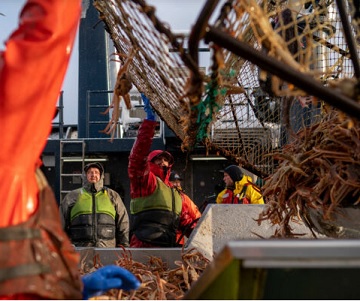
Alaska snow crab fishery saw steep decline. A reporter went ‘Into the ice’ to see it for himself.
CG: Well, at the heart of this reporting that you did were snow crab numbers. So what’s going on with those snow crab numbers? And how steep of a decline have they seen? HB: Well, it’s really pretty stunning for some of the biologists who do the surveys because, of course, in 2020, because of COVID, they were unable to do the summer surveys of crab population. So they did them in 2019. And when they came back in the summer of 2021, they found these staggering drops in abundance of different populations of the snow crab. The juvenile females were down by more than 99%. The juvenile males were also way down. And they’re also less of the mature males and the mature females. So this really triggered a major reassessment of what would be a safe level of harvest for this 2022 season. And they ended up still having a harvest, but reducing it by nearly 90%, >click to read< 16:37
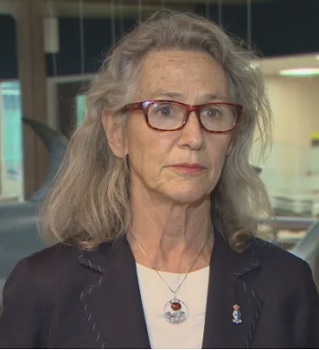
FFAW “Shocked” by Federal Fisheries Minister’s Comments on Climate Change
The union says Minister Murray put forward her ideas and vision for the east coast fishery at the Canadian Independent Fish Harvesters Federation annual meeting. She outlined her goal to leave as many fish in the water as possible and to grow as much vegetation in the water as possible so that the Atlantic Ocean can better absorb carbon to combat climate change. She indicated that fish harvesters would have to accept the sacrifice as part of Canada’s commitment to fight climate change and noted that with technological advancements harvesters could change career paths and work remotely from their homes. >click to read< 08:29
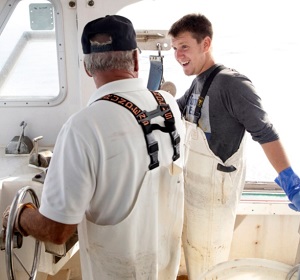
Virginia Olsen: People in Maine’s fishing industry are pleading for rational policies, not denying them.
As a member of the Maine Lobstering Union and a multi-generational lobsterman from Stonington, I read with interest The Lobster Trap, a collaboration between The Boston Globe and the Portland Press Herald. On one hand, I was impressed by the authors’ captivating storylines on the people and families who comprise our multi-generational industry and the recognition of the day-to-day challenges confronting us. On the other hand, I could not help viewing some of the series’ broad-brush inferences and conclusions as inaccurate, unfair and condescending. Precious few lobstermen qualify as wealthy “one-percenters,” as the authors suggest. The Maine lobsterman is not an “average worker,” and any comparison is an unfair characterization, whether made directly or by inference. >click to read< By Virginia Olsen 10:19
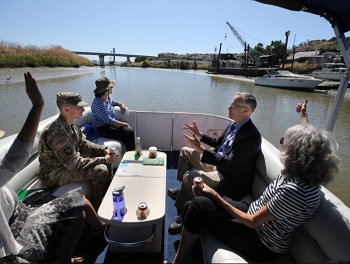
California poised to impose wave of boat emissions rules in 2022
Like users of lawn mowers and gas leaf blowers, working boat captains, excursion operators and fishermen will be asked told to get on board with new engine emissions regulations starting as early as 2022. The California Air Resources Board released its proposed emissions regulations on commercial boats in September. After hosting hundreds of meetings and receiving an opposing petition signed by thousands of sport fishers in California, the air quality agency expects to finalize the first in a montage of stricter guidelines to upgrade the boats by next spring. >click to read< 13:21
Democrats And Republicans Debate Changes To Magnuson-Stevens Fishery Act
Everyone needs to watch this. You should be alarmed. >click to watch. 09:33
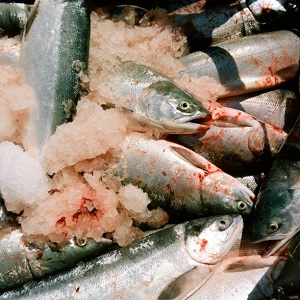
One Alaska Bay Is Booming With Salmon, For Now
Bristol Bay’s sockeye harvest has long made up about half of the global catch of this species, in a seasonal blitz as short as it is enormous: The fishery lasts a mere six weeks. Each summer, 15,000 seafood processors, boat-based fishermen, and setnetters, including families such as the Bandles, gather here to support an industry worth more than $2 billion in 2019. Some fishermen will net enough cash to live on until the fish come back the next year. And this year, Bristol Bay outdid itself,,, But such riches are localized. Outside of Bristol Bay, salmon fisheries are failing, including those on British Columbia’s famed Fraser River, on Alaska’s Chignik and Copper Rivers, and in Cook Inlet. Five hundred miles north of Bristol Bay, Yukon River salmon runs have totally collapsed. >click to read< 12:35 ADFG: Bristol Bay sockeye runs set all-time record – It’s official: Bristol Bay’s 2021 commercial salmon season was the largest on record. >click to read<
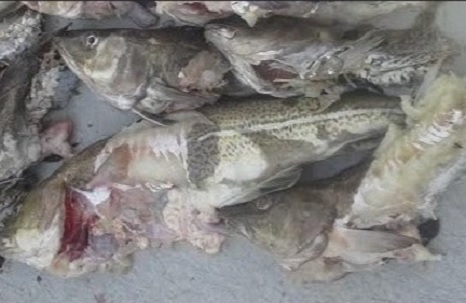
Mismanaged Since 1949 II: DFO wants to clear the air about the role of seals and focus on ecosystems. Lol.
DFO estimates the Northwest Atlantic harp seal population at 7.6 million, the highest on record (based on 2017 data), at more than triple the population of 50 years ago and still steadily increasing. But Mr. Russell’s concerns are at odds with DFO science, which says the harp seal population is not a major factor in declining fish stocks. Instead, DFO officials offer a different explanation, one that’s harder for local fishermen to accept: that climate change is at the root of the problem. DFO officials held a technical briefing at the end of June to address what they described as “misinformation” about the impacts of seals on fish such as Atlantic cod and capelin in Newfoundland and Labrador waters. During the one-hour briefing, geared toward media, the officials presented the North Atlantic seal as less of a scoundrel and more of a scapegoat. >click to read< 21:12
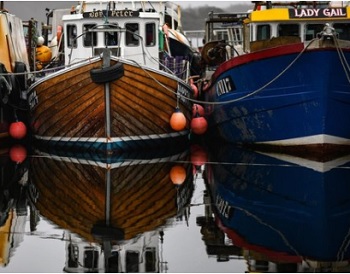
Climate change: Scotland’s fishing fleet doesn’t deserve to be turned into a water-borne bogeyman by enviros
In fact, official government advice is for people to eat at least two portions of fish per week, one of them oily, and the Scottish government has a dietary goal of increasing fish consumption among the population. Meanwhile, the Scottish fishing industry has a lower carbon footprint than most other forms of food production, such as meat and even many vegetables. Yet with the United Nations’ Cop26 climate change conference due to be held in Glasgow this November, presenting many opportunities for cheap headlines, skippers, crews and coastal communities have been singled out by environmental NGOs for their perceived lack of progress towards achieving net-zero carbon emissions. >click to read< 07:48
‘I’m truly upset’: CA sport fishermen say proposed emissions standards will put them out of business – >click to read<
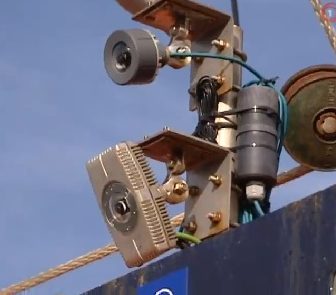
Electronic Monitoring of the Lobster fishery, Tracking of the Red Shrimp fishery to be imposed
America’s lobster fishing businesses could be subjected to electronic tracking requirements to try to protect vulnerable right whales and get a better idea of the population of the valuable crustaceans. The fishery has collapsed in southern New England, however. Fishermen from New York, Connecticut and Rhode Island were once a significant part of the fishery,,, >click to read<…The American red-spotted shrimp fishery may be subject to electronic tracking requirements to protect vulnerable right whales and better understand precious crustacean populations. However, fishing has collapsed in southern New England. Fishermen in New York, Connecticut, and Rhode Island used to be an important part of the fishing industry, Starks said, but the stock of red-spotted shrimp in southern New England is now depleted. Scientists have linked the collapse of fishing in southern New England to warming seawater. >click to read< 10:50
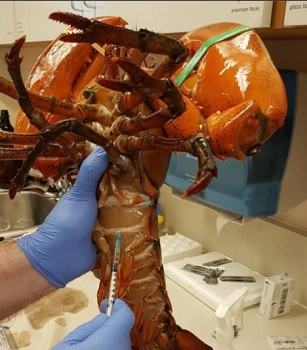
The lobster genome map – ‘It’s an encyclopedia on how to make a lobster’
Lobster already live in a variety of different habitats around Atlantic Canada, from the relatively warm waters of the Northumberland Strait through progressively warmer waters on P.E.I.’s North Shore, the east coast of Nova Scotia, and the Bay of Fundy. “We want to really understand how that temperature stress is going to impact different stages of lobster, and if that’s going to be the same impact in different areas of Atlantic Canada,” >click to read< 09:24
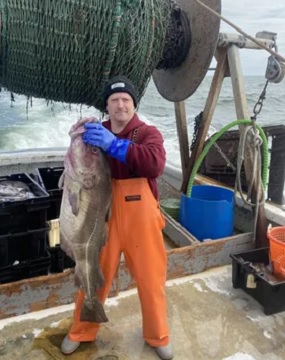
Doomed to Extinction? Where have all the codfish in the Gulf of Maine gone?!!
The commercial fishermen have all been given a personal quota for cod. If they reach their quota, they need to purchase or lease more quota from someone who has extra. The price to “lease” these fish in order to catch them can be exorbitant. Cod has become a commodity on the market being bought or hoarded by non-fishermen to make money off the backs of the active fishermen,,, And then there are the seals. Yes, harbor seals, gray seals and harp seals. Seals would not normally be feeding on large amounts of cod, but we have protected the seal population for decades without regard to the rest of the environment. The result is unmistakably a huge explosion in the seal population within the Gulf of Maine. So, are the cod doomed to extinction? >click to read< 07:50
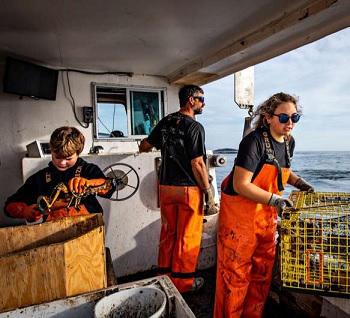
Maine’s having a lobster boom. A bust may be coming.
The waters off Maine’s coast are warming, and no one knows what that’s going to mean for the state’s half-billion-dollar-a-year lobster industry, the largest single-species fishery in North America. Some fear that continued warming could cause the lobster population to collapse. The Gulf of Maine, an ocean body brimming with marine life, is cradled by Cape Cod in the south and the Bay of Fundy in the north, and bounded in the east by two underwater shoals, George’s Bank and Brown’s Bank. In 2015, climate scientist Andy Pershing, formerly of the Portland-based nonprofit Gulf of Maine Research Institute, published a paper in Science concluding that the gulf was warming faster than “99% of the global ocean.” That eye-popping revelation was enough to keep fisheries managers and a whole lot of Mainers awake at night. >click to read< 16:27
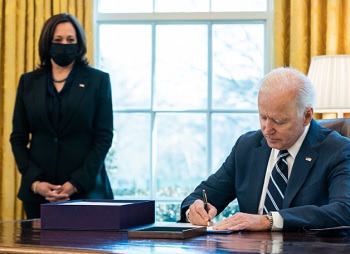
At-Sea Processors Association and Seafood Harvesters of America applaud “30×30” initiative
A Biden administration plan to conserve at least 30% of federal lands and oceans by 2030 is winning applause from the seafood industry, but questions abound elsewhere, raising political obstacles. Just about 12% of the nation’s land area is currently under some form of environmental protection, along with about 26% of the country’s ocean areas. The plan, an executive order issued by the Biden administration, and popularized as the “30×30” initiative, has won support from the harvester and processor sector of Alaska fisheries and others, (do you?) in that industry, but farmers and ranchers elsewhere remain skeptical. >click to read< 12:50
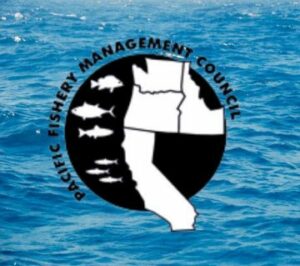
NOAA Report: Pacific waters off the West Coast show improved productivity – Cooler temps created a robust environment
Ocean waters off the West Coast showed signs of improved productivity in 2020 after several years of warm water and poor fisheries conditions, The higher productivity seen in 2020 comes after a period of poorer conditions in the Pacific Ocean off the West Coast. “The previous five years, starting in early 2014, were very warm. We were seeing conditions that were not good for the fisheries,” said Toby Garfield, a researcher with NOAA and co-editor of the report. “We’ve had some tough times in the last few years,” said Tracy. “For a lot of species, the cold water regime is favorable, so that’s encouraging.” >click to read< 11:27

Fishing industry unimpressed with Biden Harris’s NOAA/NMFS climate crisis notions. (Offshore Wind Farms, either!)
President Biden ordered NOAA to collect information from a wide range of groups on increasing the resilience of fisheries as part of his plan to address climate change and to protect 30% of U.S. ocean areas by the year 2030. The NOAA directive is included in the sweeping executive order Biden signed his first week in office that made “the climate crisis” a centerpiece of his presidency. “Fisheries, protected resources, habitats and ecosystem are being affected by climate change,” acting NOAA Fisheries chief Paul Doremus said at the beginning of yesterday’s conference call. >click to read< 07:55
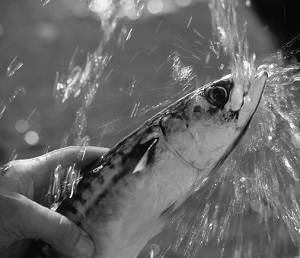
The World’s Supply of Mackerel Is on the Move
The Northeast Atlantic mackerel is a small fish with grey or greenish-blue scales and tigerlike black stripes from mouth to tail. Lacking a swim bladder, the gas-filled organ that helps most fish move up and down in the water, the mackerel would sink and die if it ever stopped. So it is always on the move, looking for plankton, crustaceans, and other small fish. In recent years, the mackerel’s unceasing motion and radically increased abundance have taken it farther north, to Greenland or Svalbard, which lies between Norway and the North Pole, and northwest, to Icelandic waters. And when the fish turned up, the Icelanders took advantage. By tradition, their nation had no claim to this fish, but starting in the mid-2000s, when the lucrative fish arrived in great numbers, they struck. >click to read< 11:09
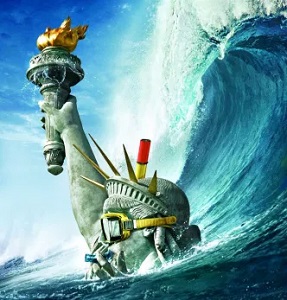
Are Temperatures and Sea Levels Rising Dangerously? Hardly
There are two widely held climate-change beliefs that are simply not accurate. The first is that there has been a statistically significant warming trend in the U.S. over the last 20 years. The second is that average ocean levels are rising alarmingly due to man-made global warming. Neither of these perspectives is true; yet both remain important, nonetheless, since both are loaded with very expensive public policy implications. To refute the first view, we turn to data generated by the National Oceanic and Atmospheric Administration (NOAA) for the relevant years under discussion. >click to read< 14:24
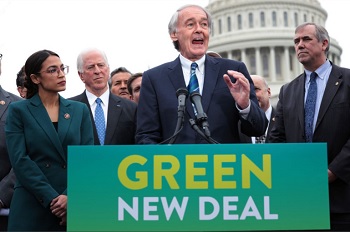
Not Promoting Nuclear Power is hypocrisy. Wind and solar promotors lie about the problems. Lots of problems
Whatever your views on climate change, the idea that trying to run modern, civil societies on sunshine and breezes might somehow prevent it is, of course, a complete nonsense. Nuclear to Replace Wind and Solar – In the words of James Hansen, the scientist most responsible for promoting global warming, wind and solar are “grotesque” solutions for reducing CO2 emissions. Michael Shellenberger, a prominent activist, has the same opinion. Hansen and Shellenberger, as well as many other global warming activists, have come to the conclusion that nuclear energy is the only viable method of reducing CO2 emissions from the generation of electricity. >click to read< 09:14

A Greek tragedy? New England lobsters caught in perfect storm of warming seas and save the whales activism
Climate change, ocean acidification,,, it’s nothing compared to what will become of the industry if the self-coronated “Prince of Whales,” New Hampshire’s Richard “Max” Strahan, has his way. To lobstermen, though, Strahan has proven himself far more than a vaudevillian nuisance. The kicker, says Strahan, who gets more animated as our conversation goes on, is that the whales are pretty much doomed no matter what. In 2017, the North Atlantic right whale population didn’t reproduce at all, usually considered the death knell for an endangered species. In late June, a six-month-old right whale calf was found dead with propeller wounds off the coast of New Jersey. Lobstering had nothing to do with it, but it won’t help the industry’s case. “It’s not really that they’re being caught in fishing gear,” Strahan admits. “It’s the fact that they don’t reproduce anymore. That’s what’s killing them.” >click to read< 08:07
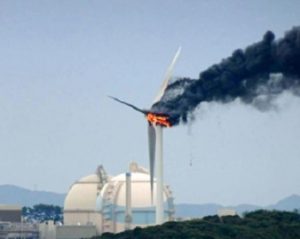
Michael Shellenberger: Let’s Get Serious, Let’s Go Nuclear
Whatever your views on climate change, the idea that trying to run modern, civil societies on sunshine and breezes might somehow prevent it is, of course, a complete nonsense. One environmentalist who called it out, loud and early, was Michael Shellenberger. As a long-time advocate for reliable, affordable and safe nuclear energy, and critic of intermittent renewables, calling wind and solar worse than useless, Michael combines common sense, logic and reason, in an era when those attributes have become scarce commodities. Here’s Michael having a crack at some of those who would drive us back into the Stone Age, if they were ever given the chance. Why Climate Activists Will Go Nuclear—Or Go Extinct >click to read< 09:03
 Rep. Kennedy Backs Offshore Wind – “Jobs and Justice Initiative” “Through the JJI we will deploy a clean energy job core to support on and offshore wind, solar panel installation, energy storage, energy efficiency, building retrofits, cleaning of toxic sites, urban farm and community garden installations, national park maintenance, and environmental justice,” Kennedy said. >click to read<
Rep. Kennedy Backs Offshore Wind – “Jobs and Justice Initiative” “Through the JJI we will deploy a clean energy job core to support on and offshore wind, solar panel installation, energy storage, energy efficiency, building retrofits, cleaning of toxic sites, urban farm and community garden installations, national park maintenance, and environmental justice,” Kennedy said. >click to read<
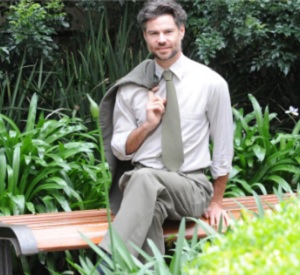
Michael Shellenberger: Sorry, But I Cried Wolf on Climate Change – A Mea Culpa
If climate change is a problem, then wind turbines and solar panels aren’t a solution: heavily subsidised and unreliable wind and solar are an economic and environmental disaster. When climate alarmists managed to hijack energy (and with it economic) policy it was a case of lunatics (Offshore Wind 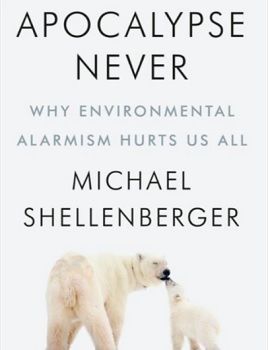 Farmers, politicians)taking over the asylum. Last week, Michael Shellenberger hit the headlines with a heart-felt mea culpa, the foundation for which is laid out in his latest work, ‘Apocalypse Never: Why Environmental Alarmism Hurts Us All’. At 459 pages it’s a thoroughly researched piece of academic work that can’t be easily dismissed or ignored; as a grand and exhaustive effort to expose the fanciful and far-fetched claims being made about a planet on the brink it’s had a perfectly predictable result. >click to read< 16:38
Farmers, politicians)taking over the asylum. Last week, Michael Shellenberger hit the headlines with a heart-felt mea culpa, the foundation for which is laid out in his latest work, ‘Apocalypse Never: Why Environmental Alarmism Hurts Us All’. At 459 pages it’s a thoroughly researched piece of academic work that can’t be easily dismissed or ignored; as a grand and exhaustive effort to expose the fanciful and far-fetched claims being made about a planet on the brink it’s had a perfectly predictable result. >click to read< 16:38
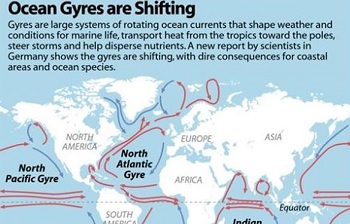
New study shows ocean currents are shifting toward the poles
In the past 40 years, eight of the world’s major ocean gyres (wind-driven current systems) have been slowly shifting toward the poles at a rate of about a mile every two years. Up to now, available observations have been sparse and short in duration, making it difficult to track any dynamic changes of large‐scale ocean circulation. This is what experts at the Alfred Wegener Institute, Helmholtz Centre for Polar and Marine Research (AWI), analyzing long-term global satellite data of ocean surface temperature and sea levels found. >click to read<10:49
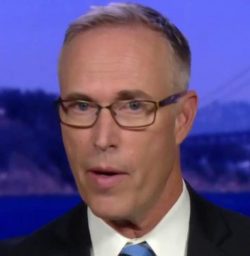
Managing A Lucrative Resource In The Face Of Climate Change
Conservationists and commercial fishing industry leaders came together on the need to restructure the Magnuson-Stevens Fishery Conservation and Management Act to adequately consider climate impacts during a panel discussion in Honolulu. But that was about it for the common ground they found during the last stop on U.S. Rep. Jared Huffman’s nationwide “listening tour” on reforming the MSA. The panelists, which also included state and federal officials, had diverging views on the effectiveness of marine national monuments like Papahanaumokuakea and whether the eight regional councils that the law set up to manage fishery resources nationally should have designated seats to ensure representation from environmental, indigenous and scientific interests as well as the commercial fishing industry. >click to read< 10:38
What ever happened to HR-200? I have no interest in these people reauthorizing anything.
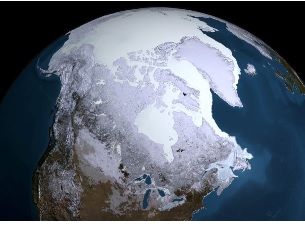
Could Global Cooling Be Our Bitter-Cold Reality?
Trying to imply that cooling is right around the corner when we’re watching record-breaking warm ocean temperatures to me seems a big stretch. But current facts and the history around the five previous Ice Ages that came and melted before fossil fuels became recognizable words may be worthy of review. The real climate crisis may not be global warming, but global cooling, and it may have already started. These events may not be an anomaly, but a predecessor of things to come: Planting was one month late due to cold spring weather across the Great Plains of North America in both 2018 and 2019. >click to read< 11:15
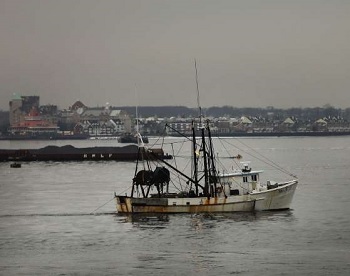
Climate Change Is Sending This Fluke Fight to Court
Disputes over fish quotas are not new, and the $25.2 million East Coast market for fluke—although a reliable bread-and-butter fish—is not particularly lucrative. And New York has sued to alter the quota before. But this lawsuit is being watched closely because it introduces a new factor into the decades-old quota system: the impact of climate change. Quickly warming waters have reshaped the entire fishing industry on the East Coast, moving the fluke dramatically to the north. The lawsuit argues that now 80% of all fluke catches occur within 150 miles of Long Island and that state allocations need to be updated to reflect the fishes’ evolving location. >click to read< 08:17






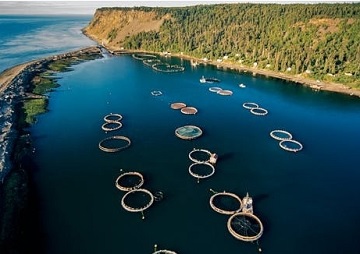
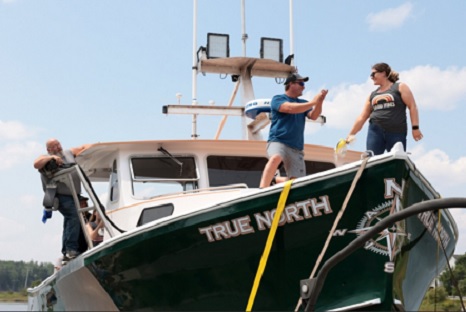
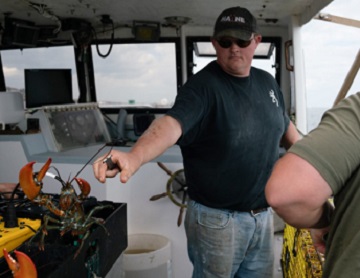
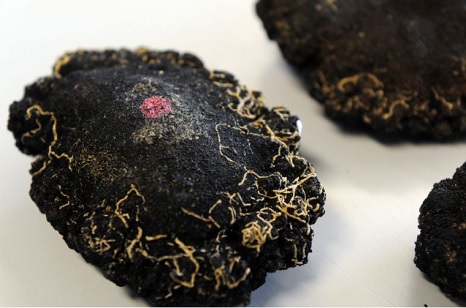































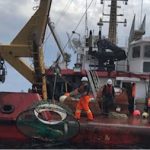
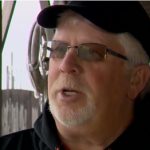
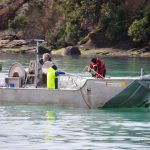




Calling On DFO Minister to Clarify Comments
Dear Minister Murray: As the Shadow Minister for Fisheries in Newfoundland and Labrador, I write on behalf of the PC Official Opposition Caucus to express our deep concern over remarks you reportedly made during your recent speech at the recent annual meeting of the Canadian Independent Fish Harvesters Federation. The president of the association representing fish harvesters in our province issued a news release in which he restated and challenged your vision for the fisheries here on Canada’s East Coast, saying you told your audience of fish harvesters that your goal as Minister is to leave as many fish and grow as much vegetation in the water as possible so the Atlantic Ocean can better absorb carbon to combat climate change and fish harvesters will simply have to accept the sacrifice as part of Canada’s commitment to fight climate change. >click to read<, By Craig Pardy, MHA Bonavista 14:30
Share this post